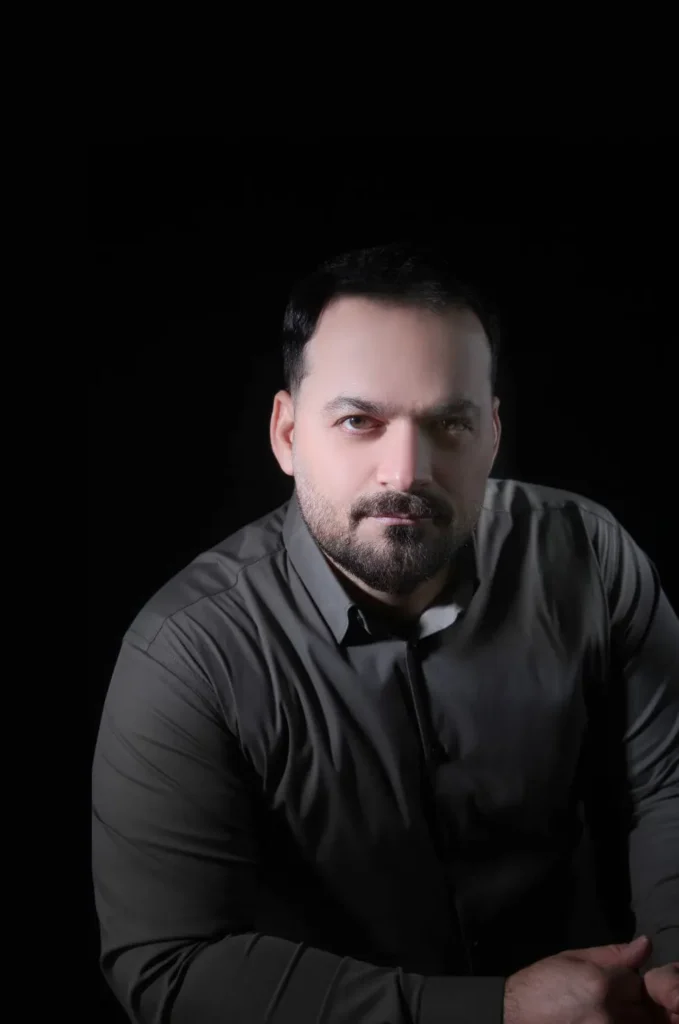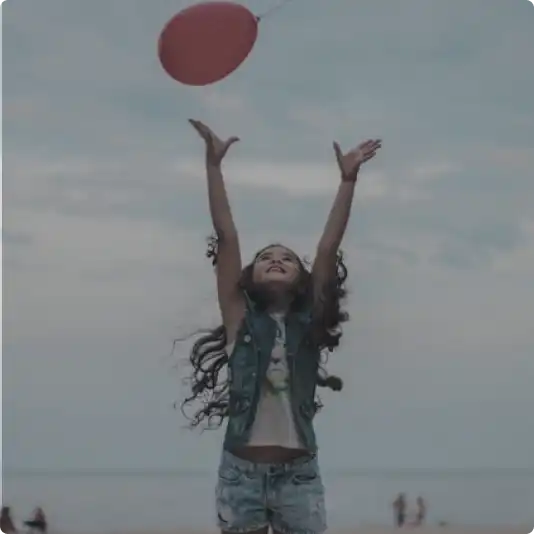
Farhad Radfar
Psychoanalytic Psychotherapist, Supervisor, Lecturer and Researcher
Board Member and Faculty Member of the Khishtan Psychoanalysis Association
Research Fellow, Parenting Studies Center
Iran Psychiatric Institute
Based in Iran
Education and Specialized Training:
- Ph.D. Candidate in Clinical Psychology, Shahid Beheshti University
- M.A. in Child and Adolescent Clinical Psychology, Shahid Beheshti University
- Specialized Certificates in Psychoanalytic Psychotherapy: Freud, Object Relations, Klein, and Bion (domestic and international)
Areas of Expertise:
- Psychoanalytic Psychotherapy for Adults
- Clinical experience in treating trauma- and stress-related disorders, dissociative disorders, psychosomatic and mood disorders, existential crises, identity, emotional, and relational issues
- Clinical supervision and training in psychoanalytic psychotherapy
- Parent counseling and education
- Couples and family counseling and education
Active participation in cultural and mental health projects for Iranian immigrants
Scientific works, translations, and publications:
Published Scientific Articles:
Habibi, M., Hosseini, F., Darharaj, M., Moghadamzadeh, A., Radfar, F., & Ghaffari, Y. (2018). Attachment style, perceived loneliness, and psychological well-being in smoking and non-smoking university students. The Journal of Psychology, 152(4), 226–236.
Zabihzadeh, A., Nejati, V., Maleki, G., Darvishi, M., & Radfar, F. (2012). The study of relationship between mind reading ability and big five factors of personality.Advances in Cognitive Sciences, 14(1), 19–30.
Mousavi, S. S., Nadri, M., Amiri, M., Radfar, F., & Farokhcheh, M. (2016). The predictive role of psychological flexibility and cognitive emotion regulation strategies on depression, anxiety, and stress in type 2 diabetic patients. Middle Eastern Journal of Disability Studies, 9.
Nejati, V., Kamari, S., Shiri, E., & Radfar, F. (2016). Determining semantic network for Persian selected word and designing false memory scale (MAHAK) based on it. Journal of Cognitive Psychology, 3(3–4).
Radfar, F., Nejati, V., & Fathabadi, J. (2016). The impact of cognitive rehabilitation on working memory and verbal fluency in dyslexic students (a single case study). Thoughts and Behavior in Clinical Psychology, 11(40), 17–26.
Radfar, F., Nejati, V., Fathabadi, J., & Layegh, H. (2016). Effect of attention training on working memory function and reading components in pupils with dyslexia: A single-subject design study. Journal of Mazandaran University of Medical Sciences, 26(142), 194–212.
Books, translations, and authored works:
- Psychological First Aid: A Guide for Social Workers – Translator – Ghalam-e-Mehr Publications
- Resilience from 8 Months to 18 Years – Translator – Arjmand Publications (Second Edition)
- From Birth to Five Years: A Scientific Guide to Parenting – Translator – Danjeh Publications
- Parenting in Domestic Violence – Author – in collaboration with the State Welfare Organization of Iran
- The Source of Power: Therapy for Juvenile Offenders – Verjavond Publications
Languages:
Book a Psychotherapy Session

Introduction
The professional journey of a therapist is deeply intertwined with their personal growth. Individual therapy, specialized supervision, and participation in clinical training are only some aspects of this path that shape the foundations of a therapist’s insight and competence. What truly gives life and meaning to this journey, however, is encountering the experiences that arise within one’s personal and professional life—often unnamed and unspoken experiences, unsaid fears, unbridled anger, and pains that sometimes seek refuge only in the body.
For me, understanding the meaning of these experiences has been possible through the lens of psychoanalysis, supported by personal therapy, specialized supervision from internationally recognized psychoanalysts, and ongoing participation in clinical training—a slow yet profound process that transforms not only the therapist but also the very essence of being human. The therapy room, for me, is a space for shared human experience; a place to tolerate ambiguity, to develop the capacity to see and endure truth, and to have faith in possibilities that have yet to emerge.
Personal Therapy and Supervision
I am a psychotherapist, translator, author, educator, and researcher, whose primary concern is observing and striving to uncover and understand the often-overlooked dimensions of human experience—especially in conditions where the body and mind face suffering, illness, or trauma. Throughout my professional journey, I have drawn inspiration from classical and contemporary psychoanalysis, phenomenological theories, neuroscience, and modern theories of trauma and dissociation, among other disciplines, without limiting myself to any single framework.
What is essential for me is listening to what is unspoken; to what is absent, fragmented, or dwelling silently within the body. In line with this, I strive to offer, through deep and diverse engagement with various sciences, new concepts that can expand the language of psychoanalysis and psychology and enhance understanding of the mind to the best of my ability. My belief is that every signal in the body is a word that must be heard, and every silence is a cry that has yet to find its language.






